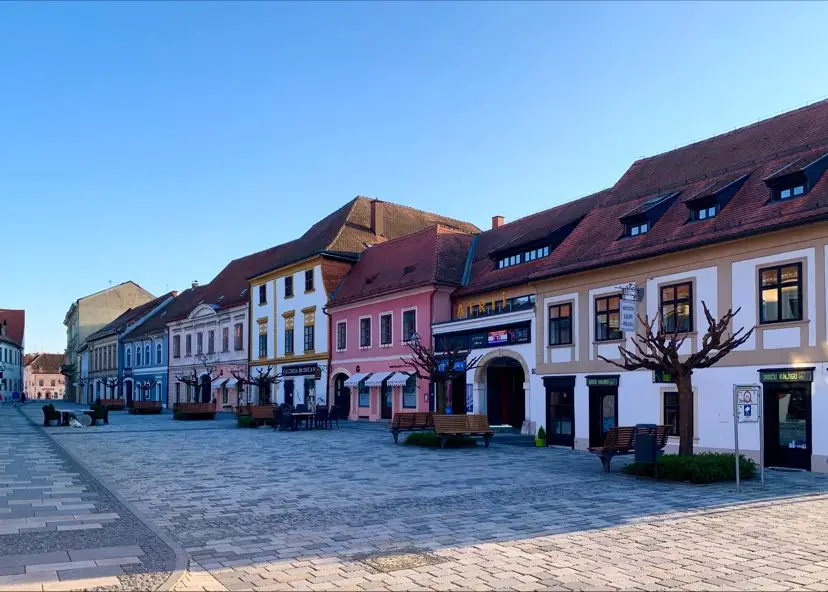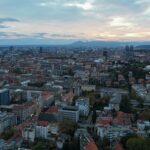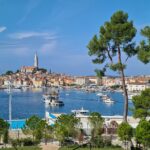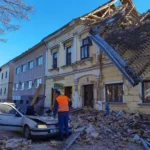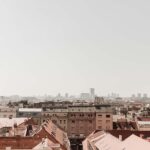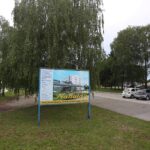During the 2018 World Cup in Russia, a bizarre discussion emerged in the international media complaining that Croatia had no black players, and that is was a 100% per cent white team. Nobody seemed to mind that most of the African teams were black by comparison. It started a bit of research into just how many foreigners where living in Croatia, and the results you can read in the article of the time, 99.3%: Croatia, the Most Racially Pure Caucasian Country in the World.
Fast forward four years, and one does not have to be long in a supermarket or cafe to see that there has been a seismic change, as foreign workers from Africa and Asia are increasingly doing jobs which Croats are reluctant to take due to low wages.
One of the people I follow on LinkedIn is a chap called Milan Horvat in Varazdin, whose posts are always thought-provoking. Below is a translation of his latest, a fascinating snapshot of the rapid change Varazdin has undergone in just a few years.
****
In the city where I live, Varazdin, there are just under 3,000 foreigners from Europe, Asia, and Africa, and that is almost 15% of all employees. Without them, the economy of this city has no chance of functioning normally.
It is the city with the lowest unemployment rate in the Republic of Croatia. Only 7 years ago, there were barely 50 foreign workers in it, and then everything began to change abruptly. In the Croatian public, there is talk of our people going to work abroad, and Varazdin, for example, in 2021 had a greater number of immigrant citizens than they moved away. What happened?
We entered the EU a decade ago, and the other day we entered the euro monetary union and the Schengen zone, and it’s time to start discussing the European value system.
Varazdinians have been working in the border towns of Slovenia and Austria for as long as I can remember, especially after 2013. A lot of them travel there to work and back as well as to Zagreb, and a smaller part of them have rented cheap accommodation because they spend weekends at home. They work where their work is better paid.
Less than a decade ago, Varazdin was an example of an ethnically-clean city with extremely tolerant and hardworking people. In just a few years, everything has changed. Today, almost every ninth working person in my city is from another part of the world, and you can no longer walk around the city or go to the store to buy groceries without meeting people from another continent, of colour and race, from other countries. They are not tourists, they are my fellow citizens, my associates at work, and with them, life in the city is more dynamic, interesting, richer, and better.
The European value system implies, inter alia, that a city or region must make sure that they become attractive to the lives of citizens and be able to attract other people because they need them to be able to function and develop, and not to act as if it is self-evident that the people who were born there will stay here to live and work.
At the same time, such an approach retains the existing residents and offers them opportunities for a better life for both them and newcomers. What is best in my story is that Varazdin entrepreneurs are aware of this, but so too are the HDZ county prefect and SDP mayor, so they are both trying in accordance with their capabilities and powers to make the best possible conditions for living and working for all citizens.
Life in the EU is not a black-and-white film, and we are becoming more and more aware of it, and Luckily I was raised to love all that colorful colour, and I grew up and live in a city where it has always been cool.
PS Last year, Varazdin was declared the best city to live in Croatia and not for the first time, nor is it accidental.
You can see the original post in Croatian and/or follow Milan Horvat on LinkedIn.
****
What is it like to live in Croatia? An expat for 20 years, you can follow my series, 20 Ways Croatia Changed Me in 20 Years, starting at the beginning – Business and Dalmatia.
Follow Paul Bradbury on LinkedIn.
You can subscribe to the Paul Bradbury Croatia Expert YouTube channel here.
Croatia, a Survival Kit for Foreigners is now available on Amazon in paperback and on Kindle.


